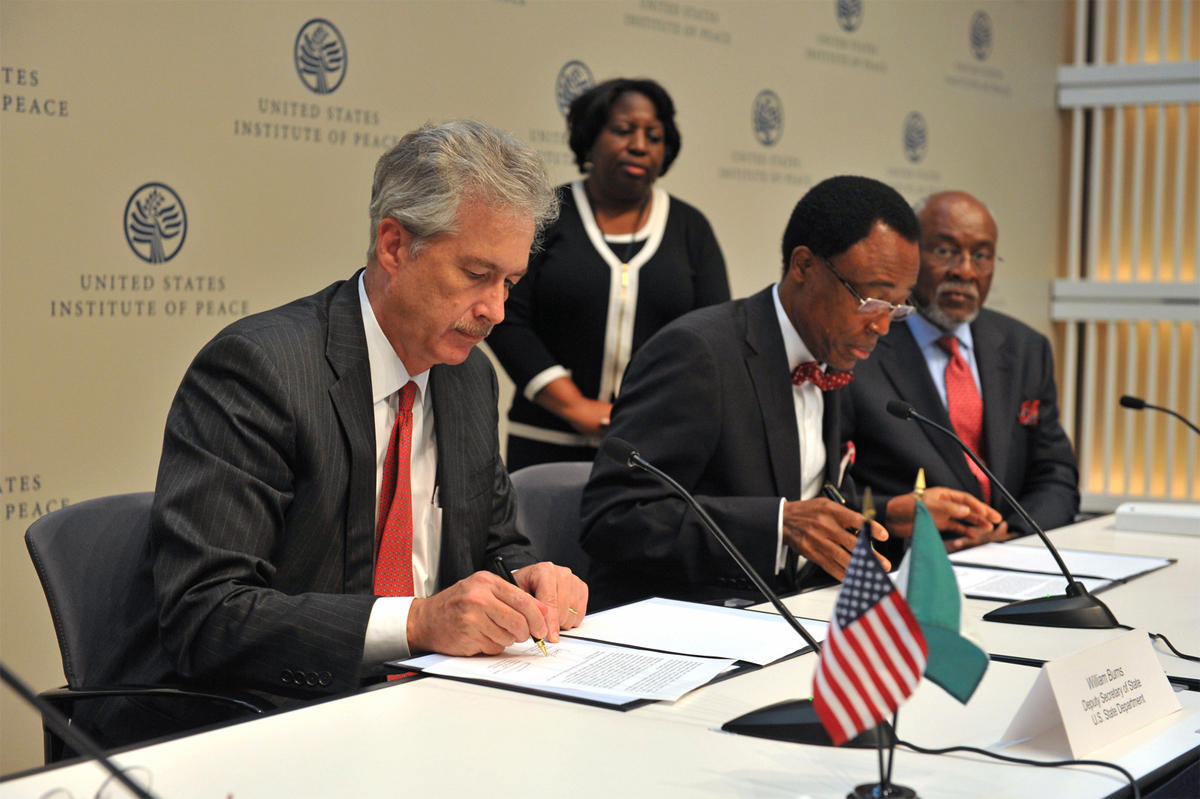U.S., Nigeria Sign Communique on Bilateral Cooperation at USIP
The signing took place on June 5, 2012, at the U.S. Institute of Peace (USIP), with U.S. Deputy Secretary of State Bill Burns representing the United States and Permanent Secretary Martin Uhomoibhi, a senior Foreign Ministry official, representing Nigeria. It capped a two-day meeting of the U.S.-Nigeria Binational Commission held at USIP.

Relations between the United States and Nigeria show "enormous promise," said U.S. Deputy Secretary of State Bill Burns at the June 5 signing of a joint communiqué on deepening bilateral ties between the U.S. and Africa's most populous nation.
The signing took place at the U.S. Institute of Peace (USIP), with Burns representing the United States and Permanent Secretary Martin Uhomoibhi, a senior Foreign Ministry official, representing Nigeria. It capped a two-day meeting of the U.S.-Nigeria Binational Commission held at USIP.
"That future will be brighter if we approach it together," Burns said.
Uhomoibhi said the communiqué "represents a very bold statement…to see that our two peoples walk very closely together." He called for expanding the relationship, saying, "Nigeria and the United States share common values." He reiterated Nigeria's commitment to democracy, with leaders continuing to be "chosen by all the people and not imposed."
The joint communiqué of the U.S.-Nigeria Binational Commission includes a Nigerian pledge to "widen budgetary transparency efforts," including public declarations of assets by parliamentarians and other senior officials. Nigeria and the United States also committed to work together to enhance investigation and prosecution of public corruption, as well as to increase public confidence in the ability of Nigeria's military and police to respond to the threat of violent extremism. The United States will also assist Nigeria with its electoral institutions in advance of 2015 elections and with trade and agricultural development matters.
The Institute venue for the U.S.-Nigeria Binational Commission meeting, says David Smock, senior vice president of USIP's Centers of Innovation and a longtime Africa specialist, "in part reflects the long involvement that USIP has had with Nigeria." Over the last 10 years, USIP has worked with local partners in Nigeria to try to promote peace between Christians and Muslims in places like Plateau State and Kaduna State. In addition, the Institute has promoted training in conflict resolution in the conflict-prone Niger Delta, as well as helped with the reintegration of rebels in the Delta following a government amnesty. USIP has participated in the training of Nigerian peacekeepers prior to their deployment in United Nations and African Union peacekeeping missions. USIP has also commissioned a series of policy papers on issues related to peacebuilding in Nigeria.
"We have a long and deep engagement in Nigeria going back more than a decade," said George Moose, a former U.S. assistant secretary of state for African affairs and vice chairman of USIP's Board of Directors, in remarks to participants at the beginning of the meeting.



